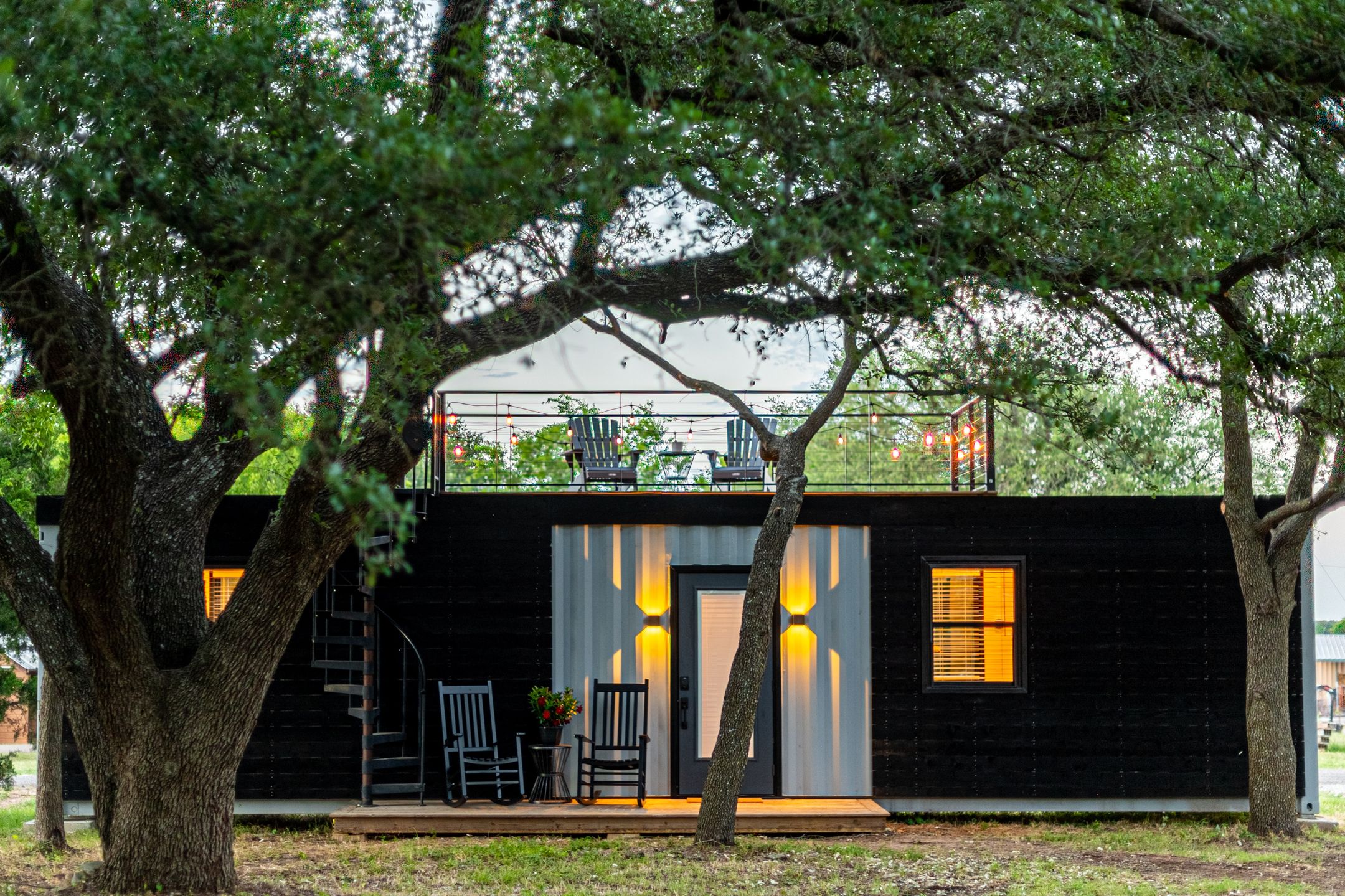Email: info@yimuhouse.com Whatsapp: (+86)13391718082

Get A Quote
Are Container Houses Good for the Environment?
Introduction
The embrace of sustainable living transcends mere trends, representing a conscious decision toward a more environmentally sound future. Within the realm of innovative housing solutions, container houses stand as an epitome of eco-friendly construction. These exceptional dwellings, fashioned from repurposed shipping containers, embody the forefront of sustainable living ideals by harmonizing environmental responsibility with contemporary architectural designs. The appeal of container houses extends beyond their distinctiveness; it's rooted in their eco-friendly essence. Amidst the evolution of conventional housing, these homes catalyze a substantial shift towards embracing sustainable living practices. Exploring the environmental benefits of container houses allows us to enter a realm where reclaimed steel evolves into an architectural wonder, presenting compelling pathways for a lifestyle aligned with environmental consciousness. Join us on a journey to unlock the vast potential of container houses and grasp why they serve as beacons of hope for eco-friendly living.
Environmental Advantages of Container Houses
Reducing Carbon Footprint: Container House as an Eco-Friendly Choice
Container houses play a pivotal role in reducing our carbon footprint, standing as a testament to sustainable architecture. The inherent eco-friendly nature of these homes stems from their unique ability to reuse and recycle materials. The essence of container houses lies in repurposing shipping containers that have fulfilled their initial transportation role. Rather than being discarded, these durable steel structures are transformed into livable spaces. By breathing new life into these containers, we extend their usability, significantly reducing waste and contributing to a circular economy. Container houses demonstrate a commendable impact on carbon emissions when compared to conventional homes. Through innovative repurposing, the process of converting shipping containers into habitable spaces requires less demand for raw construction materials. This significantly curtails the carbon-intensive production processes of traditional housing materials like cement, bricks, and lumber. The eco-friendly attributes of container houses manifest in their ability to minimize environmental strain. They serve as a sustainable alternative that actively mitigates carbon emissions, paving the way for a more eco-conscious approach to modern living.
Preservation of Metal Resources: Sustainable Use of Shipping Containers
Container houses champion sustainability by repurposing shipping containers that have fulfilled their transportation purpose. Rather than discarding these sturdy steel structures, they are upcycled into eco-friendly living spaces. This innovative reuse of shipping containers significantly lessens the demand for new construction materials, effectively reducing the environmental burden associated with traditional housing development. By opting for container houses, individuals contribute to a circular economy, promoting a more sustainable and eco-conscious lifestyle. The enduring nature of container houses further underscores their eco-friendly essence. Constructed from durable Corten steel, shipping containers are inherently designed to withstand harsh maritime conditions. This inherent durability translates into prolonged longevity for container houses. Their robust structure ensures resistance against adverse weather elements, emphasizing their sustainability and reduced environmental impact over time. By embracing container houses, individuals not only minimize the depletion of new resources but also promote the sustainable use of existing materials, fostering a greener approach to modern habitation.
Space Efficiency and Reduced Environmental Footprint
Container houses inherently champion space efficiency in their construction. Unlike traditional housing that often requires extensive land and resources for development, container houses utilize considerably less space. Their compact and modular design allows for flexibility in placement, enabling construction in areas that would otherwise remain unused or underutilized. By optimizing available space and employing a more efficient building approach, container houses contribute to a reduced environmental footprint, showcasing their eco-friendly nature in the realm of housing solutions. The utilization of container houses significantly mitigates the demand for raw materials, particularly wood, thereby lessening the strain on forests and natural habitats. Traditional housing construction often involves extensive timber use, leading to deforestation and habitat degradation. Conversely, container houses serve as a sustainable alternative, curbing the need for excess wood in building structures. By minimizing reliance on timber resources, container houses play a crucial role in preserving natural environments and promoting ecological sustainability. This eco-friendly approach aligns with efforts to conserve ecosystems and protect biodiversity, underscoring the positive environmental impact of container house construction.
Energy Efficiency and Reduced Consumption
Container houses exhibit a commendable emphasis on sustainable energy practices, aligning with their eco-friendly nature. Many container house designs integrate renewable energy sources such as solar panels or small-scale wind turbines, harnessing natural elements to power homes. By leveraging these sustainable energy solutions, container houses significantly reduce their reliance on traditional energy grids, minimizing their overall carbon footprint. The incorporation of renewable energy technologies exemplifies a proactive approach toward eco-conscious living, positioning container houses as an environmentally responsible housing choice. Insulation plays a pivotal role in container house eco-friendliness, ensuring optimal energy conservation. Effective insulation not only regulates internal temperatures but also reduces the need for excessive heating or cooling. Container houses, when appropriately insulated, demonstrate superior energy efficiency compared to traditional dwellings. This enhanced insulation capability not only contributes to lower energy consumption but also diminishes environmental impact by curbing the demand for continuous energy usage. Container houses prioritize insulation strategies, fostering an eco-friendly living environment that champions energy conservation and sustainability.
Conclusion
Container houses embody a wide range of environmental advantages, solidifying their status as a key emblem of sustainable living. These dwellings contribute to a greener environment by curbing carbon footprints through resource recycling and reuse. By repurposing metal resources and optimizing space, they exemplify eco-friendly living choices. Their energy-efficient features, including advanced insulation methods, drastically curtail energy usage, fostering a more sustainable future. Embracing container houses signifies a pivotal stride toward nurturing eco-conscious lifestyles. Their focus on sustainability and utilization of recycled materials provides a compelling alternative to conventional housing. Encouraging the adoption of container houses enables individuals to actively participate in environmental preservation while reaping the rewards of their cost-effectiveness and enduring durability. Is a sole shipping container sufficiently spacious for your accommodation needs, or would your belongings not fit within a compact living space? Come to YIMU!

